Soundproofer Eastwood Nottinghamshire (NG16): If the level of noise is a problem in your Eastwood home then it may be time to think about installing soundproofing to make your living room, bedroom, home office or studio a peaceful haven from your neighbours and the outside world. In some cases you could be investigating soundproofing so you do not disturb other inhabitants from a kid's room, music room or home cinema. Whatever your requirements are, soundproofing will provide you with peace of mind.
It's important for us to understand how sound travels and is transmitted around a building before it is possible to identify strategies to prevent it from occurring.
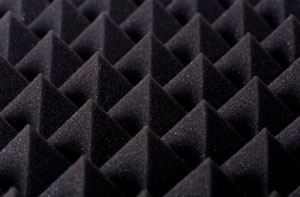
There are only two ways by which sound can be transmitted around a room:
1. In open spaces by movement of air.
2. Through the vibration of objects or materials.
As dolphin and whale song demonstrates, sound also travels through water, but unless your aim is to soundproof an aquarium or pool we will look only at the techniques of soundproofing buildings and rooms.
SOUND TRAVEL THROUGH THE AIR
If you glance around the space to be soundproofed and detect heating ducts, gaps around doors, single glazed windows and even light fittings and electrical sockets, these are all factors that can transfer sound. All sound vibrates the molecules in the air and these vibrations are what we identify and hear as sound. All sounds travel through the air in the same way; it does not matter if it's music, children playing, passing aircraft, traffic or machinery that produces the sound.
You should therefore think of a room as a boat and inspect it carefully for leaks that need sealing before you can sail it.
SOUND TRAVEL THROUGH STRUCTURES AND OBJECTS
Sound waves can also be absorbed by, transferred to or reflected by solid materials and structures. Sound can be moved around a dwelling from its original source via the vibration of floors, ceilings and walls. Even if a room is encased in a solid material that's resistant to vibrations, such as a concrete lined cellar, the sound can sometimes be transmitted and perhaps even amplified to other parts of the structure.
So, how can we stop these sound vibrations having an impact on other people? Soundproofing of course.
SIMPLE SOUNDPROOFING STEPS
If you have bare floorboards or floors, consider covering them with carpet or laying a few rugs to help reduce any vibrations and sound reflections. The rugs or other soft coverings will help to soak up sounds but can also add a touch of style to a previously bare room. Hanging curtains and wall coverings can also prevent sound vibrations and reflections through windows and walls without the need to hire a team of professional soundproofing installers.
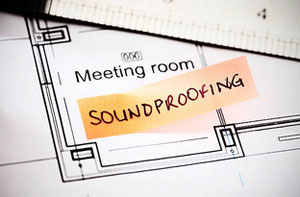
Search for areas around the rooms where sound can escape or come in; doors, electrical sockets, light fittings and windows, and stop up the gaps. It is possible to purchase professional acoustic sealants in some builders merchants which repress the transfer of sound by absorbing the sound waves. There may be a little difference in price in comparison with a regular sealant, however the soundproofing capabilities are much better and can make a huge difference to a room's soundproofing.
For anybody renovating a property or redecorating a room, evaluate the soundproofing benefits of adding an extra skin of plasterboard or soundboard, (also called gyproc, drywall or sheet rock), whilst you're undertaking this work. Plasterboard is a very dense material which is both effective and economical for soundproofing purposes. It is ideal for spaces like studies, home cinemas or music studios that are being built within the home. If you do choose plasterboard to help with your soundproofing exploits it is wise to employ a professional fitter in Eastwood, to achieve the maximum possible benefit from its installation.
The last solution for DIY enthusiasts is to think about the doors within your home in Eastwood. Hollow doors are reasonably cheap although their soundproofing qualities are a far cry from ideal. If you are able to change to solid wooden doors you will discover that it enhances your soundproofing more cheaply than some other solutions.
PROFESSIONAL SOUNDPROOFING EASTWOOD
Some homes, for example those on aircraft flight-paths or next to busy traffic routes, have naturally more sound problems and will need other ways to solve the dilemma. This is when employing the services of a specialist soundproofing installer will deliver the greatest results.
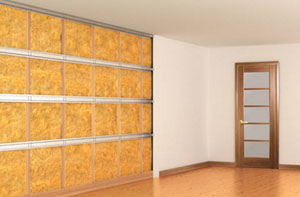
Be ready to answer the following four questions during an investigation of your specific soundproofing needs:
- What sounds or noise are you wanting to suppress? i.e. External things like neighbours playing loud music, road noise, passing trains etc, or sounds inside your home from a family room or teenagers bedroom.
- What type of property or room do you want to soundproof? Does it have a plasterboarded partition wall, a brick wall or a lined concrete wall etc.
- Where is most of the noise coming from? The walls, doors, floor, ceiling or windows.
- How big is the room requiring soundproofing?
Your answers to these queries will enable you to receive itemised quotes for the different solutions available to suit your situation. They'll offer different methods for soundproofing each of the troublesome areas within your home.
PROFESSIONAL SOUNDPROOFING OF FLOORS, WALLS and CEILINGS
To soundproof any type of room requires 2 key components:
- Update and increase the amount of sound absorption.
- Cut down on the ways that sound is reflected off and transmitted through hard surfaces.
To precisely analyse the elements that need to be improved, an on-site survey needs to be carried out by a soundproofing expert.
A professional will investigate the different methods for adding mass and density to the problem areas. The addition of acoustic foams and rubbers of different density and mass will help to absorb sounds and reduce transmission and reflection sources.
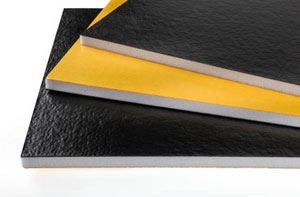
Voids between joists might require insulation to eliminate resonation spaces between them. If you picture these spaces like a drum then you'll appreciate that by leaving wall cavities and floor or ceiling joist spaces open, you are creating a noise amplifying area.
Mixed layers of differing density and mass materials work better at absorbing noise than a solitary layer of one material type. The different materials will eliminate different sound frequencies and deliver a more harmonious auditory experience and feeling to a room.
Part E of the Building Regulations deal with the soundproofing of domestic properties, and must be followed by any soundproofing specialist in Eastwood. Such legislation must be adopted in order to protect yourself and others from the harmful effects of noise pollution.
The Association of Noise Consultants (ANC) and the Institute of Acoustics (IOA) are recognised trade organisations who provide training, qualifications and are representative of the very best in companies and contractors which offer soundproofing services. Only those Eastwood companies that have been vetted and accredited by these associations for professionalism, reliability and quality are allowed to display the logo.
Where is Soundproofing Available?
Soundproofing services are available in Eastwood and also in: Underwood, Greasley, Brinsley, Ripley, Giltbrook, Nottingham, Shipley, Langley Hill, Old Basford, Newthorpe, Westwood, Bulwell, Selston, Hucknall, Nutall, Watnall, Broxtowe, Ironville, Awsworth, and in these postcodes NG16 3HH, NG16 3HQ, NG16 3FU, NG16 3BB, NG16 3BW, NG16 3FT, NG16 3FX, NG16 3BE, NG16 3GB, and NG16 3JF. Local Eastwood soundproofing specialists will most likely have the telephone code 01773 and the postcode NG16. Verifying this should ensure that you access local providers of soundproofing. Eastwood property owners can benefit from these and numerous other soundproofing related services. Click the "Quote" banner to obtain soundproofing estimates.
Acoustic Mineral Wool
Acoustic mineral wool is often the preferred option for those wanting to improve soundproofing in their homes or businesses, and it's not hard to see why. Its effectiveness and versatility allow it to absorb and block sound waves, making it fantastic for cutting down on noise between walls, floors, and ceilings. Whether you're aiming to establish a quieter home, add some privacy to your office, or soundproof a recording studio or home cinema in Eastwood, you can trust that acoustic mineral wool is a smart and reliable choice.
The secret to its effectiveness is its dense fibre composition. These fibres work by trapping and absorbing sound waves, stopping them from travelling through structures. This makes acoustic mineral wool great at reducing both airborne noise, like voices or music, and impact sounds, like footsteps on hard flooring. As a bonus, it's also fire-resistant, providing an extra layer of safety alongside its acoustic benefits. It's available in various thicknesses, and it can be easily installed in stud walls, between floor joists, or even behind suspended ceilings.
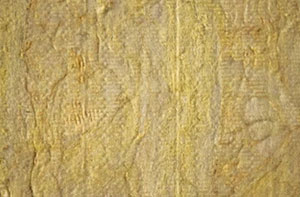
One of the best features of acoustic mineral wool is that it's incredibly simple to use. In contrast to certain soundproofing solutions that demand major structural changes, this material fits into your project with hardly any hassle. Whether you're constructing something new or renovating an old property in Eastwood, it's a straightforward and highly effective approach to enhancing the comfort and usability of your space.
Not only does acoustic mineral wool excel in soundproofing, but it also delivers exceptional thermal insulation, which helps to regulate temperatures and enhance energy efficiency. This dual-purpose material is a popular choice for those improving their property while enjoying the added benefit of effective noise control.
Overall, investing in acoustic mineral wool can make a noticeable difference to your space. By reducing sound transmission and improving insulation, it creates an environment that is more comfortable, energy-efficient, and private - ideal for working, relaxing, or socialising in Eastwood homes and commercial premises alike. (Tags: Acoustic Mineral Wool).
Mass Loaded Vinyl
A popular soundproofing material, MLV (mass loaded vinyl), is used to block noise transmission. Composed of a blend of vinyl and dense materials such as barium sulphate and calcium carbonate, it achieves a high level of density. Thanks to its density, MLV can block sound waves from travelling through walls, floors, or ceilings.
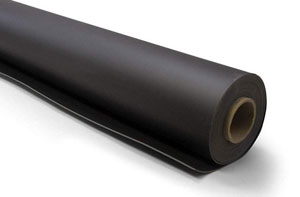
The flexibility of MLV stands out as one of its main advantages. Mass loaded vinyl can be shaped and bent to conform to different surfaces, unlike rigid soundproofing materials, making it an excellent choice for awkward or tight spaces. Frequently, it is used in vehicles, offices, and residential properties to decrease unwanted noise.
To reduce the amount of sound that can travel through, MLV works by adding extra mass to a surface. A larger mass means less sound can pass through. By adding MLV to walls or floors, you can significantly cut down on noise from other rooms or outside.
MLV is an effective and adaptable choice for soundproofing overall. Available in rolls and easily cut to size, it is straightforward to install for both professionals and DIY enthusiasts. While it might cost more than alternative materials, its effectiveness makes it worth the investment, especially in settings with high noise levels.....READ MORE (Mass Loaded Vinyl Eastwood)
Sound Absorption Solutions Eastwood
To create quieter, more comfortable working and living spaces in Eastwood, sound absorption solutions are essential. Absorbing sound waves, these solutions stop them from reverberating around a room and help muffle unwanted noise. Carpets, foam and acoustic panels are frequently used as sound absorption materials. In studios, homes and offices in Eastwood, these materials are often utilised to minimise echoes and enhance sound quality.
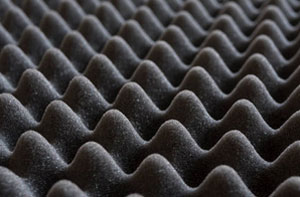
It is straightforward to install sound absorption solutions. To reduce noise, sound dampening acoustic panels can be installed on walls and ceilings, and rugs and carpets can be placed on floors. Foam panels are widely used for wall lining, especially in recording studios and home cinemas in Eastwood. These noise reduction techniques have the added advantage of enhancing a space's acoustics, leading to a more comfortable experience.
Both your comfort and health can benefit from an investment in sound absorption solutions. Too much noise can impact well-being and productivlty, making it distracting and stressful. By implementing these solutions, you create a more peaceful environment, just the thing for working, relaxing, or enjoying entertainment. To quieten a noisy office or improve your home sound system, sound absorption solutions are an effective and practical choice. (Sound Absorption Solutions Eastwood)
Soundproofing Underlay Eastwood
If you want to reduce the noise you experience in your house in Eastwood without causing too much disturbance, you could consider installing some acoustic or soundproofing underlay. These soundproofing underlays can be used on both timber and concrete floors, and underneath carpet, vinyl planks, laminate and engineered wood floor coverings.
Where there are issues with impact rather than airborne noise, acoustic underlay is especially beneficial. These days, a rise in the popularity of "harder" floor finishes has caused more and more issues with impact noise in lots of Eastwood households. This is particularly problematic in upstairs rooms, and the form of noise that we're referring to here is shifting furniture, general footfall and children stomping around.
Do not be fooled by unscrupulous carpet merchants, who may try to palm you off with regular carpet underlay as a cure for your noise related issues - this type of product should not be confused with genuine acoustic underlay. If your noise issues are serious, be sure you buy a good quality acoustic underlay from a respectable dealer.
Although it is an effective product for impact noise, acoustic underlay has varying levels of success when it comes to reducing airborne noises like shouting, blaring TV's and deafening music, and some products are certainly superior to others. You should discuss the precise kinds of noise you are striving to minimise with the supplier or soundproofing specialist, and this should allow you to determine the right underlay product for your noise cancelling goals. (Tags: Soundproof Underlay Eastwood, Soundproofing Underlay Eastwood, Acoustic Underlay Eastwood, Soundproof Underlayment Eastwood).
Soundproofing Curtains
Soundproof curtains, which are also known as acoustic curtains or noise-reducing curtains, have become popular for their ability to reduce unwanted external noise and create a more peaceful and quieter environment indoors. Enhancing living or working spaces in Eastwood, these specialised curtains absorb, dampen and block sound waves, making them an attractive option.
Soundproof curtains are produced using dense materials that are capable of reflecting and absorbing sound waves. These curtains generally have heavy fabrics, such as velvet, suede, or several layers of woven fabric, along with an inner core made of mass-loaded vinyl or foam as their layers. These materials effectively reduce the sound that enters a room by working together to minimise the transmission of noise from the outside.

Soundproof curtains are a convenient and effective way to reduce noise, with simple installation that anybody can manage. These curtains can be simply hung on pre-existing curtain rods or tracks, unlike conventional soundproofing procedures that involve complicated construction or modification of floors, walls and ceilings. If you're looking for a cost-effective and convenient way to reduce noise without making permanent changes to your living space, these curtains are the perfect solution for you, whether you're a homeowner or a renter in Eastwood.
Not only are soundproof curtains functional, they're also visually versatile. Available in a variety of patterns, colours and designs, users can choose options that match the interior decoration of their home. These curtains playing a part in the overall aesthetic appeal of the space, while also effectively soundproofing the room.
When choosing soundproof curtains, it's vital to consider the particular noise issues you're experiencing. Different curtains offer a range of noise reduction levels, traditionally measured in decibels (dB). Additionally, some curtains may provide better insulation against external noise, while others may focus on absorbing echo and reverberation within a room, making them ideal for recording studios, office spaces or home theatres.
It is essential to understand that, despite soundproof curtains significantly lowering noise levels, they might not eradicate all sounds. The thickness of the curtains, the material they are made from and the actual frequency of the noise are all elements that can have an impact on their effectiveness. To further boost noise reduction capabilities, consider using soundproof curtains in conjunction with other strategies such as sealing gaps around doors and windows, incorporating acoustic panels or using weatherstripping.
Overall, creating a serene inside environment is no longer just a dream.Soundproof curtains provide a functional and readily available answer. For noise control in homes, business premises, or anywhere you desire it, soundproof curtains shine. Combining ease of installation with a variety of attractive styles, they effectively reduce noise from outside. For enhanced tranquility and comfort in your home or office, it is important to appreciate the many features of soundproof curtains. Once you do, choosing the right ones for your needs becomes an easy task, bringing you closer to a more relaxing and quieter space. (78767 - Soundproof Curtains Eastwood)
Soundproofing Enquiries

Current soundproofing projects: Heather Wood recently requested a quotation for soundproofing the internal walls of a cottage in Underwood, Taylor Bradley from Underwood was looking for a soundproofing specialist in the Underwood area, Jonathan Moore in Watnall were hunting for someone who could soundproof a lounge which shares a party wall, Sara Reid recently enquired about soundproofing a party wall in Nutall, Sean Bennett recently asked for a price quote for installing secondary acoustic glazing in an apartment in Nutall, Tiffany Russell recently enquired about getting a price for soundproofing a reading room in Bulwell, Ryan Saunders recently asked for an estimate for soundproofing a loft conversion in Watnall, Mary Richardson was searching for soundproofing installers near Nutall, Nathan Hall recently enquired about getting a price for soundproofing the ceilings of a property in Shipley, Andrew Foster recently asked for an estimate for soundproofing an apartment in Hucknall, Emily Walsh recently enquired about getting a price for reducing the footstep noise in an apartment in Awsworth, Dylan Edwards from Broxtowe asked the question "is there someone who does soundproofing near me?", Thomas Ward from Giltbrook was looking for somebody who could soundproof a cottage, Alexandra Gray recently enquired about the possibility of reducing the levels of sound transmission in a bungalow in Greasley.
Soundproofing Near Eastwood
Also find: Underwood soundproofing, Bulwell soundproofing, Newthorpe soundproofing, Hucknall soundproofing, Nottingham soundproofing, Watnall soundproofing, Brinsley soundproofing, Giltbrook soundproofing, Langley Hill soundproofing, Old Basford soundproofing, Broxtowe soundproofing, Westwood soundproofing, Awsworth soundproofing, Ripley soundproofing, Ironville soundproofing, Selston soundproofing, Nutall soundproofing, Shipley soundproofing, Greasley soundproofing and more. There are firms who do soundproofing in pretty much all of these localities. These seasoned specialists possess a wealth of expertise and know-how, enabling them to perform top-quality soundproofing work on your property. These experts aim to reduce noise pollution effectively by providing bespoke solutions, creating a more restful and quieter environment for residents. Local householders can get soundproofing quotations by going here. So, there is no reason not to get cracking on your soundproofing project today!

Other Tradespeople in Eastwood: Home improvements in Eastwood will frequently require the skills of various different tradespeople, and a building contractor in Eastwood, damp proofing in Eastwood, a locksmith in Eastwood, a roofer in Eastwood, a painter/decorator in Eastwood, a bricklayer in Eastwood, a heating engineer in Eastwood, a floor fitter in Eastwood, a window specialist in Eastwood, a carpenter/joiner in Eastwood, rubbish removal in Eastwood, an odd job man in Eastwood, SKIP HIRE in Eastwood may be required despite the fact that you're currently in search of soundproofing in Eastwood. Click on the links to get price quotes for all types of home improvement work.
Eastwood Soundproofing Tasks

There are a wide array of tasks that can be accomplished by your local Eastwood soundproofing specialist including noise control, soundproofing, wood floor soundproofing, noisy neighbour soundproofing in Eastwood, music room soundproofing, sound masking systems, soundproofing for ceilings, soundproofing insulation, soundproofing services, echo reduction in Eastwood, soundproofing walls from noisy neighbours, batten wall systems in Eastwood, acoustic glass installation in Eastwood, soundproofed rooms in Eastwood, noise cancellation, soundproof noise from upstairs, sound management services, soundproofing for party walls, noise measurement services, ceiling soundproofing, secondary glazing, acoustic thermal installation, reduce noise from downstairs, acoustic solutions in Eastwood, isonic hanger systems, soundproofing advice, home soundproofing, window soundproofing services, acoustic membranes, soundproofing prices, and lots more. Listed are just an example of the tasks that are carried out by those installing soundproofing. Eastwood companies will keep you informed about their full range of services.
More: Noise Control Services, Sound Muffling, Soundproofing Solutions, Noise Muffling, Sound Reduction, Cheap Soundproofing, Sound Insulation, Soundproofing Companies, Sound Muffling, Noise Control, Soundproof Rooms, Noise Control, Soundproofing Experts, Soundproofers, Noise Reduction Specialists, Soundproofing Experts, Soundproofing Services, Cheap Soundproofing, Soundproofing Experts, Soundproofing Firms, Noise Reduction, Soundproofing Specialists, Soundproofing Firms, Soundproofing Services, Noise Muffling, Soundproofers, Soundproofing Specialists, Sound Insulation, Soundproofing Companies, Cheap Soundproofing.
Wall Soundproofing Services Eastwood - Soundproofing Near Me - Soundproofers Eastwood - Cheap Soundproofing Eastwood - Acoustic Solutions Eastwood - Residential Soundproofing Services Eastwood - Soundproofer Eastwood - Ceiling Soundproofing Eastwood - Soundproofing Eastwood



